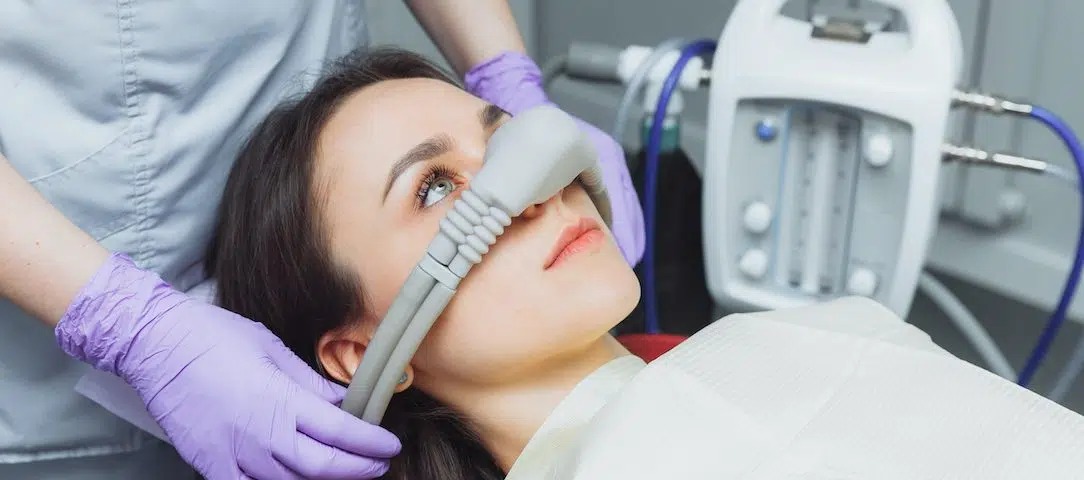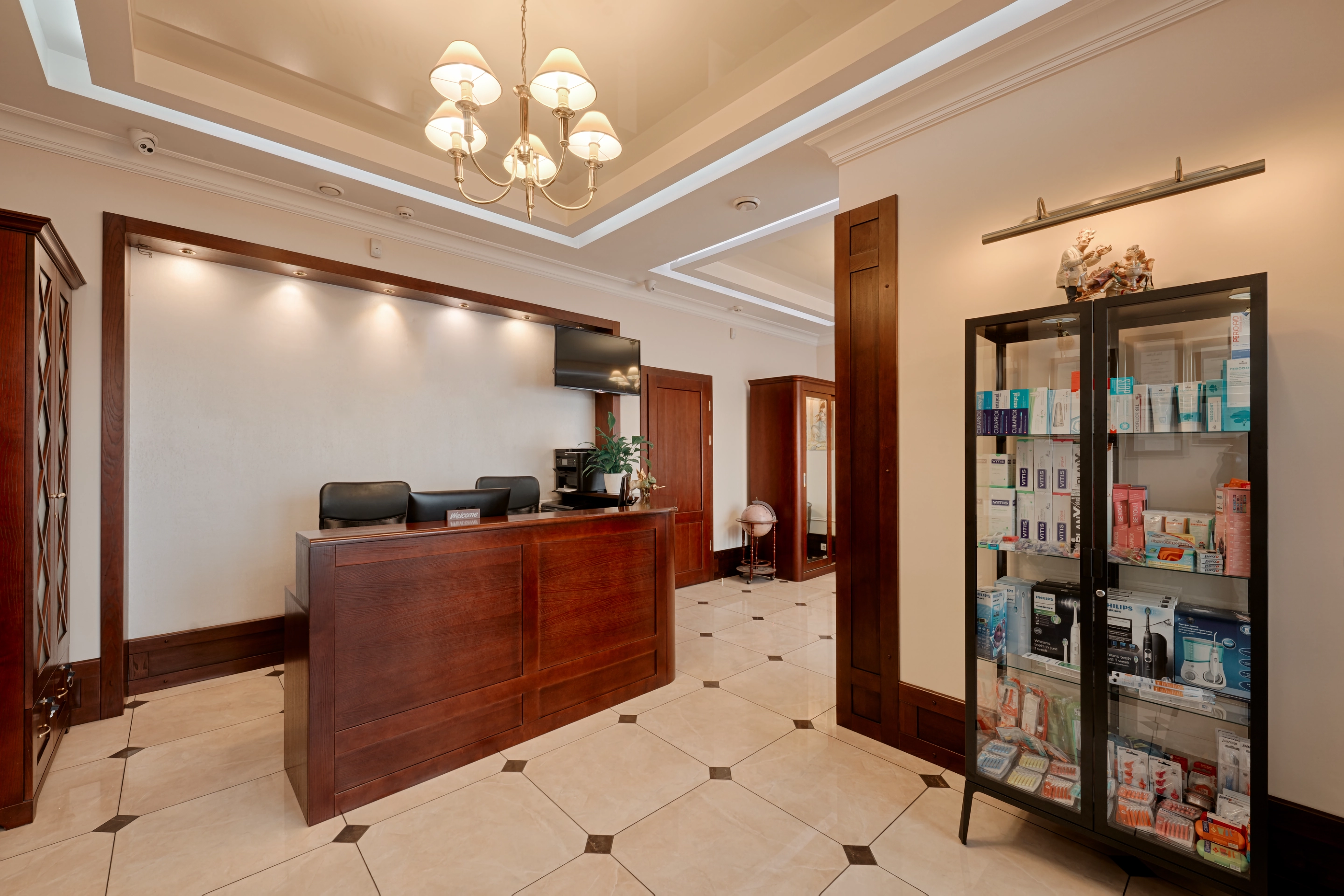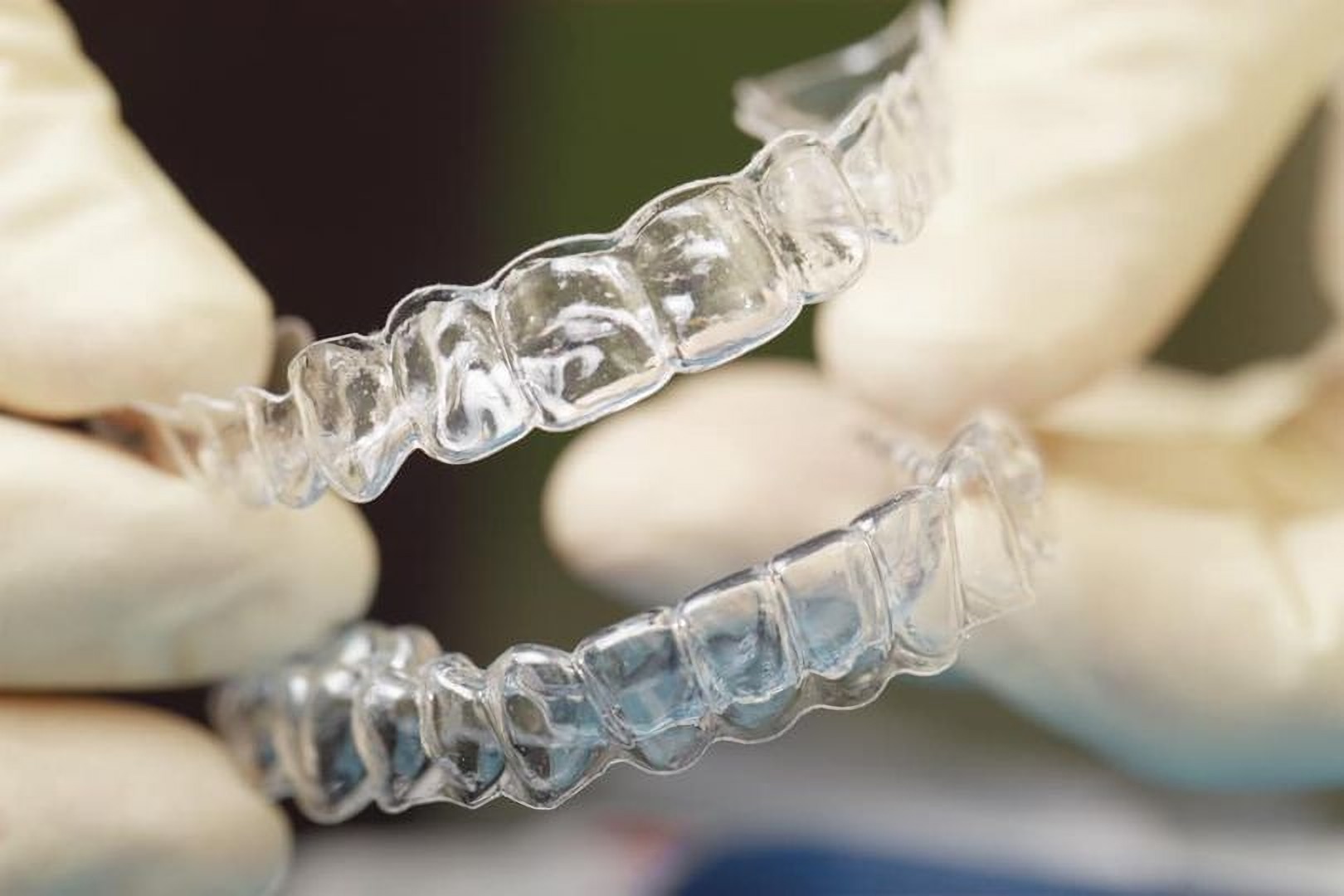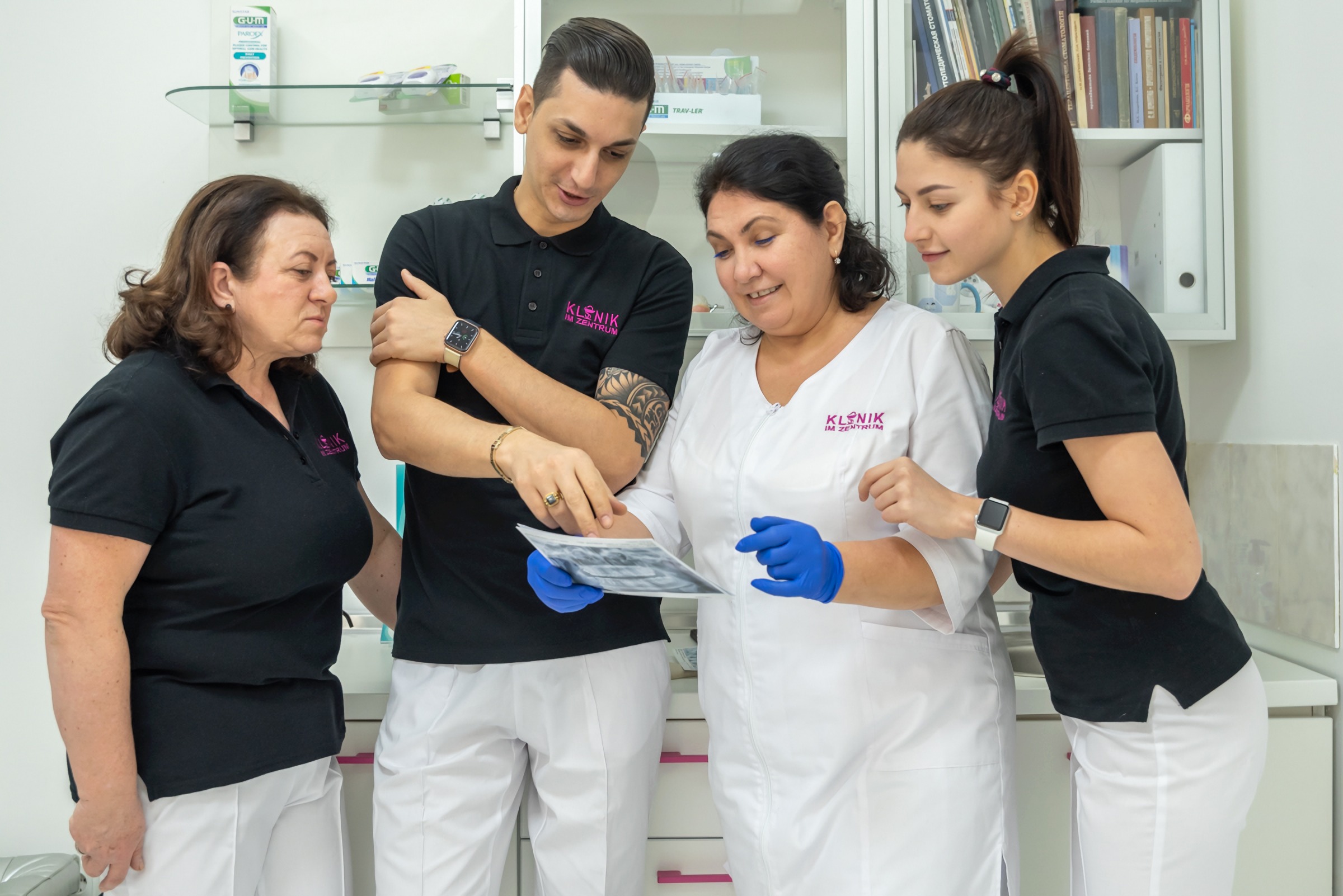Dental treatment under anesthesia
How do we organize your medical trip?





Dental treatment under general anesthesia
Tooth care – a key aspect of overall health, and visits to the dentist undoubtedly play an important role in this process. However, you'll agree that not everyone is thrilled at the prospect of a dental appointment. Some face high sensitivity, and for others, fear is a barrier to better oral health. In modern dentistry, there is an effective solution that offers maximum comfort – dental treatment under anesthesia. Let's take a look at in which cases it can be recommended, what benefits it brings, and how to guarantee the safety and quality of such procedures. Welcome to the world of painless and effective dentistry!
Take dental treatment under sedation, you can in one of the clinics presented on the platform «UAmedTOURS». Here are collected the best dental clinics in Ukraine. To make an appointment with a dentist, fill out the form or contact us by phone +38 (068) 770-61-77 (Viber, Telegram, WhatsApp).
Doctors See all doctors
When dental treatment under anesthesia is recommended
Dental treatment under sedation can be particularly beneficial in several instances where ensuring patient comfort and safety is a priority. Consider some of the situations where choosing this technique may be most effective:
- High sensitivity. Patients with hypersensitivity to pain or fear of dental procedures may experience discomfort with even the slightest interventions. Dental treatment under anesthesia allows them to undergo the necessary procedures while minimizing physical and emotional stress.
- Extensive dental intervention. For cases requiring prolonged or complex dental interventions, sedation can provide comfort for both the patient and the practitioner, allowing the treatment procedure to be more efficient.
- Children's dentistry. Anesthesia is often used in dental treatment in children because of their age and possible fear of visiting the dentist. This creates favorable conditions for the necessary manipulations without additional stress for young patients.
- Allergy to local anesthesia preparations. In cases where the patient needs anesthesia but the physician cannot use local anesthesia due to allergies, general anesthesia may be used. However, in such cases, the use of sedation must be justified.
The choice of using anesthesia for dental treatment is discussed individually with the dentist, taking into account the specific needs and characteristics of each patient.
Benefits and Safety of Dental Treatment Under Anesthesia
Dental treatment under anesthesia offers several significant benefits and provides a high level of safety for patients. Let's take a look at the main advantages of this method.
Benefits of dental treatment under anesthesia:
- No pain. One of the key benefits of dental treatment under anesthesia is the complete absence of pain during dental procedures. The patient can be assured of a comfortable and painless treatment.
- Reduction of stress and anxiety. Dental procedures can cause stress and anxiety in some patients. Dental treatment under anesthesia can reduce emotional stress, providing the patient with psychological comfort.
- Efficiency and speed. The use of anesthesia allows the dentist to carry out the necessary procedures more efficiently and quickly, reducing treatment time and increasing its effectiveness.
Safe dental treatment under sedation:
- The qualifications of the anesthesiologist. One of the keys to safety is the experience of the anesthesiologist who closely monitors the patient's condition throughout the procedure. This ensures accurate dosing of anesthetics and the prevention of possible complications.
- Individual approach. Before starting treatment under anesthesia, a thorough preliminary assessment of the patient's condition is carried out, taking into account his medical history and body features. This ensures the safety and effectiveness of the procedure.
- Monitoring during the procedure. During the entire time of dental treatment under anesthesia, the patient is under constant medical supervision, which allows you to respond to any changes promptly and ensures the safe completion of the procedure.
Dental treatment under anesthesia – is not only an effective method to combat pain and stress but also a procedure that, if properly organized, provides a high level of safety for each patient.
How to prepare for dental treatment under sedation: steps to a successful procedure
Tooth treatment under anesthesia – is an innovative method that provides patients with maximum comfort and pain-free experience. An important part of a successful procedure is proper preparation. Here are step-by-step instructions on how to prepare for a dental visit using sedation:
- Step 1: Consult with your doctor
The first step is to consult with your dentist. Discuss with him all aspects of the upcoming treatment, including the possibility of using anesthesia. Ask to talk about all the nuances of the process, take time to think about the information, and weigh the pros and cons.
- Step 2: Discuss the history
Tell your doctor about your medical history, allergies, and medications you take. This information will help avoid potential complications and ensure safety during the procedure. Discuss the course of the treatment, its duration, and whether sedation is warranted.
- Step 3: Required Examination
Before the doctor gives the go-ahead for sleep therapy, he must make sure that you have no contraindications. You will be scheduled to undergo several tests that may include blood clotting tests, cardiac tests, allergy tests, a checkup with your GP, and more. This is to ensure your safety during anesthesia.
- Step 4. Preparation before the procedure
Take care of thorough oral hygiene. Give your teeth and tongue a thorough brushing. This will help prevent possible infections and ensure the procedure goes smoother.
- Step 5: Follow your doctor's instructions
Listen carefully to your doctor's instructions regarding food and fluid intake before the procedure. It is usually recommended that you abstain from food and drinks for a certain amount of time before using anesthesia. Follow the instructions to avoid possible complications.
- Step 6: Take care of the chaperone
Make sure you have someone to accompany you home after the procedure. This is important for your safety and comfort, as you may be disoriented and feel dizzy after the anesthesia.
By following these steps, you will create the optimal conditions for a successful dental treatment under anesthesia. Be sure to follow all of your doctor's recommendations and follow the instructions beforehand.

When is general anesthesia used in dental treatment?
General anesthesia can be used in dentistry for a variety of procedures, especially those that take a significant amount of time or may cause discomfort to the patient. Some of these include:
- Wisdom extraction. This procedure often requires surgical intervention and can be painful.
- Surgical tooth extraction. For example, in preparation for orthodontic treatment.
- Tooth implantation. Surgical placement of dental implants can be performed under general anesthesia.
- Canal treatment. This procedure can take a long time and the patient may be more comfortable under general anesthesia.
- Plastic gum surgery. Some gum revision surgery may be performed under general anesthesia.
- Jaw reconstruction. Reconstructive surgeries, such as jaw reconstruction after trauma or tumor removal, may require general anesthesia.
The choice to use general anesthesia depends on many factors, including the complexity of the procedure, the patient's medical history, and the patient's physical and mental condition. The decision to use general anesthesia is made jointly by the physician and patient, and it may be part of the overall treatment plan.
Methods of general anesthesia in modern dentistry
General anesthesia in dentistry – is a method of anesthetizing and managing the patient's condition, in which the patient loses consciousness completely. Here are a few methods of general anesthesia used in dentistry:
|
Method name |
Principle |
Benefits |
|
Inhalation anesthesia |
The patient inhales anesthetic gas through a mask or IV. |
Fast onset of action, easy control of anesthesia depth, fast recovery after the procedure.
|
|
Intravenous anesthesia |
An anesthetic is injected directly into the patient's vein. |
Controlled level of anesthesia, a more stable condition, especially for prolonged procedures. |
|
Electronic anesthetics |
Use of electronic devices for accurate anesthetic dosing. |
Enhanced accuracy in achieving optimal anesthetic levels, and reduced risk of overdose. |
|
Patient monitoring |
The use of high-precision monitors to monitor important patient vitals in real-time. |
Maximum safety, monitoring heart rate, blood pressure, oxygen saturation, and other parameters. |
|
Combined methods |
Use different anesthetic techniques in combination to achieve optimal results. |
Individual approach to the needs of each patient. |
Can all patients have teeth treated under sedation?
The use of sedation in dental treatment has its limitations, which are related to the patient's health and age. Contraindications to dental treatment under sedation, are considered to be:
- Allergies and sensitivity to anesthetics. People with allergies to anesthetics or hypersensitivity to certain drugs may face risks and complications.
- Cardiovascular problems. Patients with serious heart disease or high blood pressure may have contraindications to general anesthesia.
- Cardiovascular problems.
- Respiratory system problems. People with chronic lung disease or other respiratory disorders may have difficulty during anesthesia.
- Pregnancy. In some cases, dental treatment under anesthesia is not recommended for pregnant women, especially in the first trimester.
- Pregnancy.
- Kidney and liver problems. Certain kidney or liver disorders may affect the handling of anesthetics, requiring caution.
- Uncontrolled neurologic disorders. Individuals with uncontrolled neurologic disorders may have limited options for the use of general anesthesia.
- Some psychiatric conditions. Patients with certain psychiatric conditions may require additional evaluation and preparation.
- Early Childhood. There may be limitations for children due to their specific physiology.
- The doctor will perform a detailed examination to determine if dental treatment under anesthesia is safe for you. Remember, being completely honest with your doctor about your medical condition and the medications you are taking will ensure your safety during the use of anesthesia.
For an appointment with a dentist for dental treatment under anesthesia, you can contact us by phone +38 (068) 770-61-77 (Viber, Telegram, WhatsApp).














.webp)
